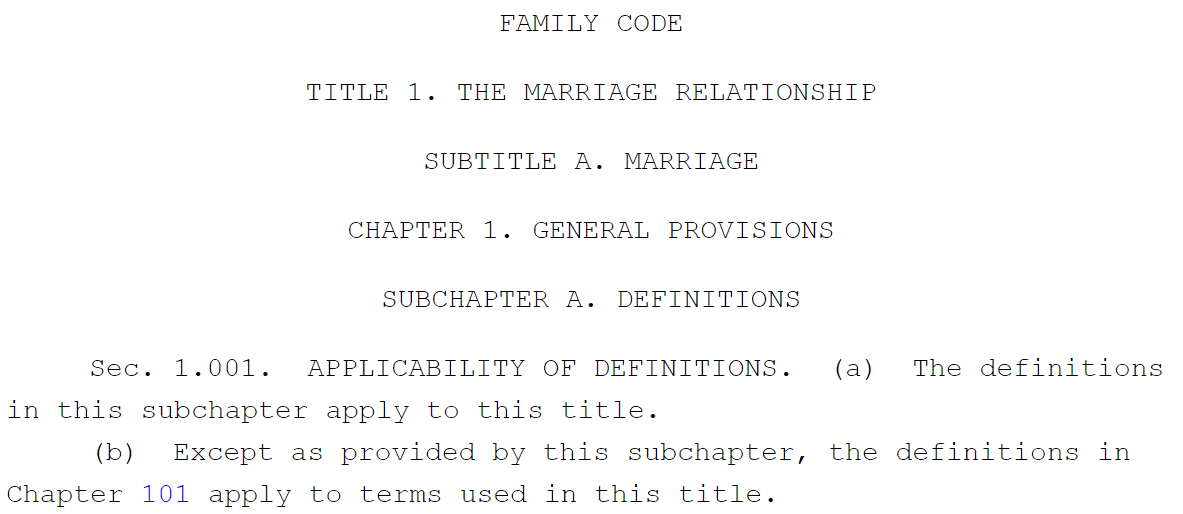Family Code & Custody Laws in US States
Every state in the U.S. has a family code — a collection of laws about family issues like child custody.
The family code could cover anything from court procedures to parenting plan formats. Many laws are common across states.
When does family code apply?
The family code applies to custody cases whether parents go to trial or negotiate an agreement. The judge must uphold the laws when making a custody decision and when approving a settlement agreement.
Over time, state governments change their family codes to adapt to new family dynamics.

Family law definition
Family law is a general term for the legal issues surrounding families and minors. Child custody, marriage, divorce, paternity and child support fall under this umbrella. A family lawyer specializes in these topics.
A judge applies two types of law to make a decision: statutory law and common law.
Statutory laws are the formal rules and regulations created by lawmakers. Family codes are statutory law.
Common law (also called case law) is made up of legal precedents, decisions made by courts in similar situations. It usually only applies if the case is unusual and the court can't make a decision using statutory law alone.
Child custody laws
Most family codes include a version of these custody laws:
- Married parents have equal rights to custody of the children born during their marriage until a court rules otherwise.
- Unmarried parents must establish the child's paternity before the court can make a custody decision.
- The court cannot discriminate against a parent based on gender, race, etc.
- All custody decisions must suit the child's best interests.
- Child custody orders stay in place until the child becomes legally independent (e.g., when they turn 18).
- Both parents must provide financial support for their children. Typically, the noncustodial parent must pay child support to ensure their contribution.
Many states, including Florida and Tennessee, require parents to try an alternative dispute resolution method (most commonly mediation) before the court will hear their case — but not if one parent has been abusive.
The vast majority of states have enacted the Uniform Child Custody Jurisdiction and Enforcement Act. And all states follow the federal Parental Kidnapping Prevention Act.
The Indian Child Welfare Act is a federal law that applies to certain custody proceedings about children who are members, or eligible to become members, of American Indian tribes. It affects how states handle adoptions and child welfare cases. It doesn't apply to custody cases between separating or divorcing parents.
Interesting child custody laws
Of course, some states have unique custody laws.
- In Georgia, children 14 or older can choose which parent to live with.
- Michigan assigns a Friend of the Court to every custody case to oversee mediation, co-parenting classes and recommendations to the court.
- In Texas divorce cases, a parent can request a jury trial.
LGBTQ spouses
Regardless of a couple's genders, they can marry, they can be listed as parents on their child's birth certificate, and they can divorce. All states must allow this. Also, states must recognize same-sex marriages and divorces performed in other states. The Supreme Court ruled on this, and later Congress reinforced it by passing the Respect for Marriage Act.
However, not all states have updated their family codes to use gender-neutral language, so it isn't always clear whether a law may still be enforced in a gendered way.
Some states — New York, for example — have updated their laws to reflect issues relevant to same-sex couples, like fertility assistance and gestational surrogacy, but not all states have done so.
For LGBTQ couples, simply being married when their child is conceived or born may not guarantee legal parenthood for a non-biological parent. If the marriage ends or if another person claims to be the child's parent, they may need another way to prove their parenthood. Advocates often recommend that LGBTQ parents go through the legal process of adopting their own children to solidify their status as parents.
Updates to the family code
Aspects of family law and custody law tend to change every few years. Legislators can introduce bills to propose family code amendments (changes) or new statutes. Every state has a process by which these bills can become law.
Federal law requires each state to review its child support guidelines every few years. When a state updates its guidelines, the new calculation tends to reflect the changing value of the dollar and the fluctuating cost of living.
Staying organized for family court
Throughout your custody case, you'll need to organize a lot of information. You may need to create multiple drafts of parenting plans and schedules, track your expenses, message the other parent and more.
The Custody X Change app enables you to do all of this in one place.
With a parenting plan template, custody calendars, an expense tracker, parent-to-parent messaging and beyond, Custody X Change makes sure you're prepared for whatever arises in your journey to custody and visitation.
Take advantage of our technology to stay on top of all the moving parts of your case.
Try this with Custody X Change.
